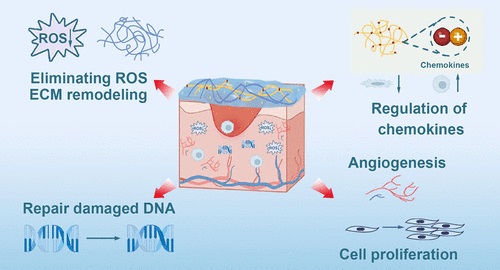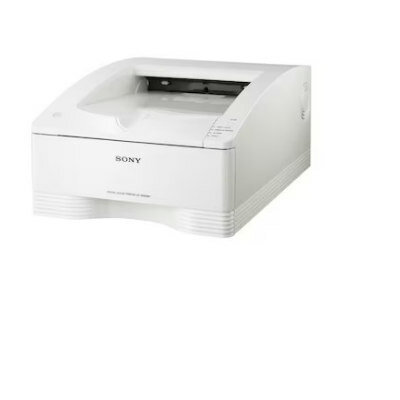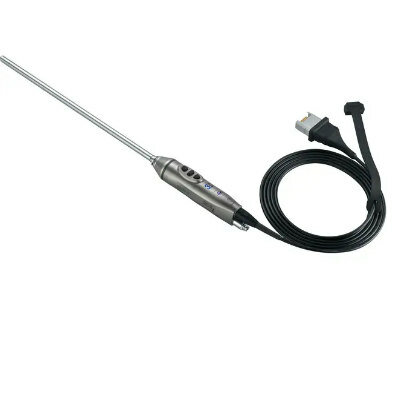Aspirin Hydrogels Provide Effective and Rapid Healing of Radiation Wounds
|
By HospiMedica International staff writers Posted on 13 Aug 2024 |

Radiation therapy, a common treatment for cancer, often leads to skin damage due to prolonged exposure. Individuals receiving radiation treatment typically suffer from skin injuries ranging from redness and pain to ulcers and infections. Current treatments for these injuries are limited and typically involve debridement (the surgical removal of dead tissue) or hyperbaric oxygen therapy (which involves breathing pure oxygen in a pressurized room). However, hydrogel-based wound dressings are becoming a favored alternative because they are simple to use and create a moist healing environment that mimics the body's own conditions. Hydrogels based on glycopeptides are particularly effective, having shown promise in laboratory and animal studies to enhance cellular growth and assist in cell adhesion and migration. Now, researchers have developed a hydrogel infused with aspirin, which simulates the nutrient-rich fluid found between cells, offering accelerated healing for radiation-damaged skin in animal models, suggesting it could be an efficient and rapid treatment for humans.
In a new report published in ACS Biomaterials Science & Engineering, a research team led by Qingdao University of Science and Technology (Qingdao, China) has proposed incorporating aspirin, widely known for its anti-inflammatory properties, into a glycopeptide-based hydrogel to create a versatile dressing for treating radiation-induced skin damage. Laboratory tests with cultured cells demonstrated that this aspirin-laden hydrogel could neutralize reactive oxygen species, mend DNA double-strand breaks, and reduce inflammation from radiation, all while supporting healthy cell growth. In trials involving mice with radiation-induced skin damage, application of this hydrogel for three weeks lessened acute injuries and promoted faster healing, indicating its potential as a practical and effective treatment for minimizing radiation damage and enhancing recovery in human patients.
Related Links:
Qingdao University of Science and Technology
Latest Critical Care News
- Novel Intrabronchial Method Delivers Cell Therapies in Critically Ill Patients on External Lung Support
- Generative AI Technology Detects Heart Disease Earlier Than Conventional Methods
- Wearable Technology Predicts Cardiovascular Risk by Continuously Monitoring Heart Rate Recovery
- Wearable Health Monitoring Device Measures Gases Emitted from and Absorbed by Skin
- Groundbreaking Technology Rapidly Detects Airborne Influenza Viruses
- Handheld Device Could Transform Heart Disease Screening
- Flexible Semi-Autonomous Robot Could Deliver Medicine Inside Body

- Neurorestorative Treatment Strategies Hold Promise for Most Severe Forms of Epilepsy
- Gene Discovery Could Help Grow New Heart Arteries
- Study Discovers Invisible Transmission of Common Hospital-Associated Infection
- Non-Invasive Neuro-Ophthalmology Techniques Could Detect Brain Tumors Earlier
- Mass Manufactured Nanoparticles to Deliver Cancer Drugs Directly to Tumors
- World’s Smallest Pacemaker Fits Inside Syringe Tip

- AI-Powered, Internet-Connected Medical Devices to Revolutionize Healthcare, Finds Study
- Starfish-Inspired Wearable Tech Enables Smarter Heart Monitoring
- AI Eye Scans Could Help Identify Heart Disease and Stroke Risk
Channels
Surgical Techniques
view channel
Intravascular Imaging for Guiding Stent Implantation Ensures Safer Stenting Procedures
Patients diagnosed with coronary artery disease, which is caused by plaque accumulation within the arteries leading to chest pain, shortness of breath, and potential heart attacks, frequently undergo percutaneous... Read more
World's First AI Surgical Guidance Platform Allows Surgeons to Measure Success in Real-Time
Surgeons have always faced challenges in measuring their progress toward surgical goals during procedures. Traditionally, obtaining measurements required stepping out of the sterile environment to perform... Read morePatient Care
view channel
Portable Biosensor Platform to Reduce Hospital-Acquired Infections
Approximately 4 million patients in the European Union acquire healthcare-associated infections (HAIs) or nosocomial infections each year, with around 37,000 deaths directly resulting from these infections,... Read moreFirst-Of-Its-Kind Portable Germicidal Light Technology Disinfects High-Touch Clinical Surfaces in Seconds
Reducing healthcare-acquired infections (HAIs) remains a pressing issue within global healthcare systems. In the United States alone, 1.7 million patients contract HAIs annually, leading to approximately... Read more
Surgical Capacity Optimization Solution Helps Hospitals Boost OR Utilization
An innovative solution has the capability to transform surgical capacity utilization by targeting the root cause of surgical block time inefficiencies. Fujitsu Limited’s (Tokyo, Japan) Surgical Capacity... Read more
Game-Changing Innovation in Surgical Instrument Sterilization Significantly Improves OR Throughput
A groundbreaking innovation enables hospitals to significantly improve instrument processing time and throughput in operating rooms (ORs) and sterile processing departments. Turbett Surgical, Inc.... Read moreHealth IT
view channel
Printable Molecule-Selective Nanoparticles Enable Mass Production of Wearable Biosensors
The future of medicine is likely to focus on the personalization of healthcare—understanding exactly what an individual requires and delivering the appropriate combination of nutrients, metabolites, and... Read more
Smartwatches Could Detect Congestive Heart Failure
Diagnosing congestive heart failure (CHF) typically requires expensive and time-consuming imaging techniques like echocardiography, also known as cardiac ultrasound. Previously, detecting CHF by analyzing... Read moreBusiness
view channel
Expanded Collaboration to Transform OR Technology Through AI and Automation
The expansion of an existing collaboration between three leading companies aims to develop artificial intelligence (AI)-driven solutions for smart operating rooms with sophisticated monitoring and automation.... Read more

















